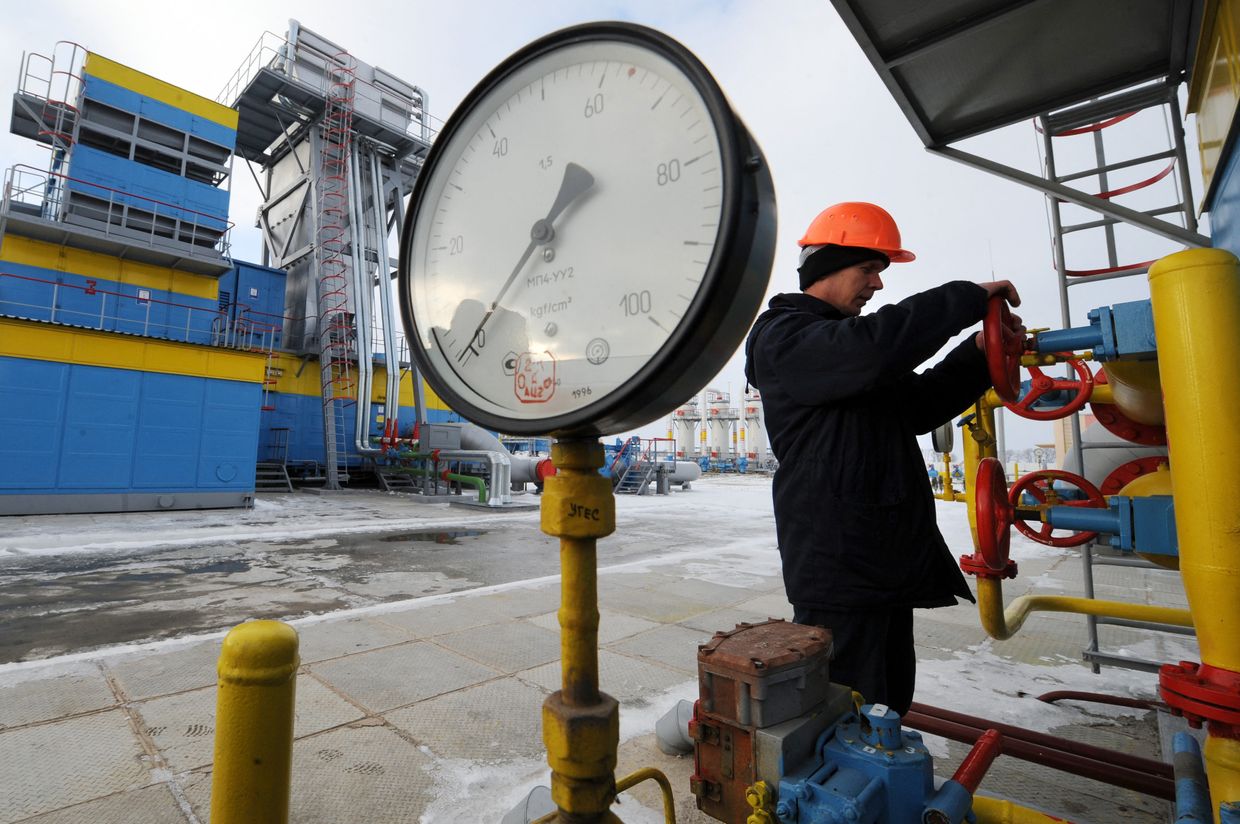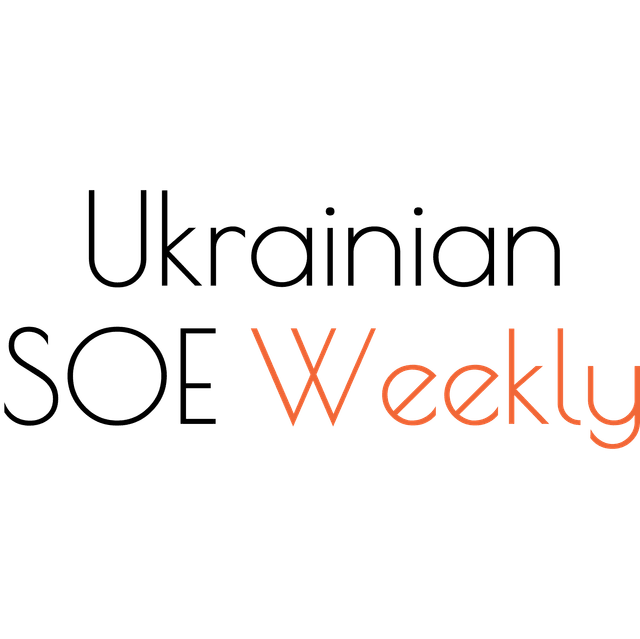Ukraine state-owned enterprises weekly — Special issue on state-owned railway company Ukrzaliznytsia

Editor’s Note: This is issue 153 (special issue) of Ukrainian State-Owned Enterprises Weekly. The Kyiv Independent is reposting it with permission.
Ukrzaliznytsia’s corporate governance failures
In this special issue, Oleksandr Lysenko and Andriy Boytsun highlight several events illustrating failures in the corporate governance of Ukrzaliznytsia. These relate to the core mechanisms intended to deter political meddling in state-owned enterprises (SOEs).
This issue aims to draw the government’s attention to these setbacks so as to prevent negative consequences for this strategically important company. Moreover, the Ukrzaliznytsia case demonstrates that the new law on corporate governance of SOEs, adopted early this year, has had little or no practical effect to date.
The Cabinet has not started the selection of Ukrzaliznytsia’s new supervisory board, despite requirements of the new law on corporate governance of SOEs
The incumbent supervisory board of Ukrzaliznytsia was appointed by the Cabinet’s decision on Dec. 29, 2021 (see our Issue 60). According to that decision, Anatoliy Amelin, Alexander Doll, Jakub Karnowski, and Gebhard Hafer became independent members, while Serhiy Leshchenko, Serhiy Moskalenko and David Lomjaria were appointed as state representatives on the board.
According to the law effective at the time of their appointment, as well the company’s charter, the maximum term of office of supervisory board members is three years. Thus, the tenure of the above supervisory board should expire as soon as Dec. 28, 2024.
Since the formation of the supervisory board in 2021, only the recent appointment of Oleksandr Kamyshin as a supervisory board member of Ukrzaliznytsia (state representative) has been known publicly. According to media reports, Kamyshin replaced Serhiy Moskalenko in this position (see our Issue 151).
At the same time, the mandatory disclosures that joint-stock companies must make according to the capital markets law and disclosure regulations of the National Securities and Stock Market Commission (NSSMC), are not available on Ukrzaliznytsia’s website. In particular, the information on the appointment and dismissal of company officers, such as the management and supervisory board, is missing.
In practical terms, this means that based on the company’s disclosures, it is currently impossible to know who its key executives are, if the company has a supervisory board, or who the members are. Ukrzaliznytsia only reported Pertsovskyi’s appointment and changes to the executive board in the “News” subsection on its website, without explaining the reasons for these decisions. [See more on disclosure requirements below.]
According to the new requirements of the SOE Law (which were introduced by Law No. 3587, effective March 8 – see our Issue 122), the selection of supervisory board candidates for an SOE must begin no later than three months before the respective supervisory board member’s term of office ends (unless a decision has been made to extend his/her term of office), or no later than 10 days from the day of his/her early termination of powers.
This means that the Cabinet, as Ukrzaliznytsia’s ownership entity, should have made a decision – by Sept. 29 – to either extend the powers of the current supervisory board members or announce a selection of board members.
Additionally, the Cabinet’s Resolution No. 643, dated May 31, 2022, abolished the competitive selection procedure for supervisory board members for almost all SOEs, including Ukrzaliznytsia. However, currently, this resolution likely contradicts the new SOE Law, which mandates that the selection of supervisory board members should adhere to the principles of collective suitability, board diversity, equality of requirements, professionalism, openness, and transparency.
The Cabinet dismissed and appointed Ukrzaliznytsia’s new CEO and executive board member against the new SOE Law
On Oct. 18, the Cabinet of Ministers terminated the powers of Ukrzaliznytsia’s entire executive board, including CEO Yevhen Liashchenko and executive board members Volodymyr Krot, Orest Logunov, Anton Mishyn, and Oleksandr Pertsovskyi.
By the same ordinance, the Cabinet appointed Pertsovskyi the new CEO for the next three years and reappointed Liashchenko as an executive board member until March 31, 2025. At the same time, Volodymyr Krot, Orest Logunov, and Anton Mishyn were all dismissed from that board.
According to the Law on the Cabinet of Ministers that was effective until March 8, the Cabinet had the authority to decide on appointing the CEO and executives of SOEs under its ownership.
Additionally, Ukrzaliznytsia’s charter states that the Cabinet, acting as the company’s general meeting, appoints and dismisses the CEO and executive board members based on the supervisory board’s proposal, meaning the Cabinet cannot make these decisions without such a proposal. However, this provision of the charter likely did not limit the Cabinet’s power to make these decisions without a proposal from the supervisory board granted by law.
However, according to the new legal requirements introduced by Law No. 3587, including those amending the Law on the Cabinet of Ministers and the SOE Law, effective since march 8, the power to appoint or dismiss CEOs and executive board members of all SOEs is exclusively vested in the supervisory board.
Additionally, we are not aware of any provisions in the SOE Law, Law on the Martial Law, or other laws that would allow the Cabinet to directly appoint or dismiss the CEO and executive board members of Ukrzaliznytsia during martial law in Ukraine.
According to Law No. 3587, the only legal option available during martial law in Ukraine that allows the Cabinet to make such decisions in place of the supervisory board is when the supervisory board is absent or lacks a quorum. However, there is no information indicating that this is the case for Ukrzaliznytsia.
Therefore, the Cabinet likely had no legal grounds for the termination and appointment decisions regarding Ukrzaliznytsia’s executive board.
If the appointment of the new CEO and executive board members is deemed illegal, decisions approved by Ukrzaliznytsia’s CEO or executive board might also be declared invalid.
Oleksandr Pertsovskyi has been Ukrzaliznytsia's executive board member and head of passenger business since October 2020. Prior to that, in 2016-2020, he was the COO/First Deputy CEO of Ukrposhta.
From 2010 to 2016, Pertsovskyi worked for Deutsche Post DHL Group, the world’s largest logistics company. During his six years of work, he rose from consultant to associate partner and head of business development in the Asia-Pacific region, headquartered in Singapore.
As we wrote earlier, Yevhen Liashchenko, who has served as the Ukrzaliznytsia’s CEO since March 2023, submitted his resignation letter in early October. There were no public comments from Liashchenko on his resignation; however, several reputable media outlets suggested several possible reasons. See Issue 151 for more detail.
Since an independent supervisory board was established at Ukrzaliznytsia in 2018, the company has experienced six CEO changes. For much of this six-year period, the company was managed by acting CEOs. Since its establishment in late 2020, the SOE Weekly has covered the four most recent CEO changes at Ukrzaliznytsia. See our Issues 19, 39, and 80 for more detail.
Poor transparency and no disclosure at Ukrzaliznytsia, despite the law
As we said above, the capital markets law and NSSMC’s disclosure regulations mandate certain disclosures for joint-stock companies (JSCs). Even stronger disclosure requirements are set for state-owned JSCs, such as Ukrzaliznytsia. According to the law, they must disclose, including on their websites, three types of information:
(1) Regular information. This information includes annual and interim reports, that contain comprehensive information about the company’s performance in the preceding year or quarter, covering both financial and non-financial performance information, as well as financial statements.
However, according to the law, during martial law, JSCs (including state-owned JSCs) are legally exempt from the obligation to disclose regular information for 2021–2024.
(2) Ongoing information. This category requires immediate disclosure of any material changes in the company’s activities, particularly information regarding:
- the appointment and dismissal of company officers, including executive and supervisory board members,
- related party and material transactions,
- dividend payments,
- approval of the remuneration report,
- company insolvency,
- the existence of business ties with an aggressor state,
- and other information.
The law offers no exemptions for the disclosure of ongoing information during martial law.
All regular and ongoing information must remain available on the website for 10 years after disclosure. Additionally, disclosure regulations require that companies’ websites have a section titled “Information for shareholders and stakeholders," accessible from the main page of their website, for the purpose of disclosure.
Although Ukrzaliznytsia’s website does have such a section, it contains no disclosures of regular or ongoing information.
(3) Other information. This includes disclosure on the company’s website of the charter, ownership structure, supervisory board regulations, executive body regulations, and other internal documents, as well as minutes of general shareholder meetings and reports from the supervisory and executive boards.
All such information must also remain available on the website for 10 years in the respective section, and it is not subject to any exemptions during martial law.
On Ukrzaliznytsia’s website, the section titled “Information for shareholders and stakeholders” has a subsection titled “Other information.” However, it only contains a list of regulations pertaining to Ukrzaliznytsia’s separate units and representative offices.
Therefore, the NSSMC, as the responsible regulator, may impose penalties on Ukrzaliznytsia for violating the disclosure rules.
(4) Responsibilities of the supervisory board regarding Ukrzaliznytsia’s corporate governance
According to the Law on Joint-Stock Companies, Ukrzaliznytsia’s supervisory board is responsible for ensuring timely disclosure of the company’s information. Under the SOE Law, the supervisory board is also responsible for the appointment and dismissal of the company’s executive board.
Despite these established responsibilities, there appears to be a lack of transparency and communication from Ukrzaliznytsia’s supervisory board concerning recent events, including management replacements and the company’s disclosure practices.
This silence raises concerns about the board’s compliance with its fiduciary duties. Indeed, the law stipulates that the supervisory board should act in the best interests of the company and its shareholders. Supervisory board members who breach their responsibilities are personally liable for any losses incurred by the company as a result of their actions or inactions.
Furthermore, according to the SOE Law, if the court rules that a supervisory board member broke his/her fiduciary duties, this serves as a ground for the early termination of his/her powers.
Ukrainian SOE Weekly is an independent weekly digest based on a compilation of the most important news related to state-owned enterprises (SOEs) and state-owned banks in Ukraine.
The contents of this publication are the sole responsibility of the editorial team of the Ukrainian SOE Weekly.
The SOE Weekly is produced and financed by Andriy Boytsun. Communications support is provided and financed by CFC Big Ideas. The SOE Weekly is not financed or influenced by any external party.
Editorial team: Andriy Boytsun, Oleksiy Pavlysh, Dmytro Yablonovskyi, and Oleksandr Lysenko.













